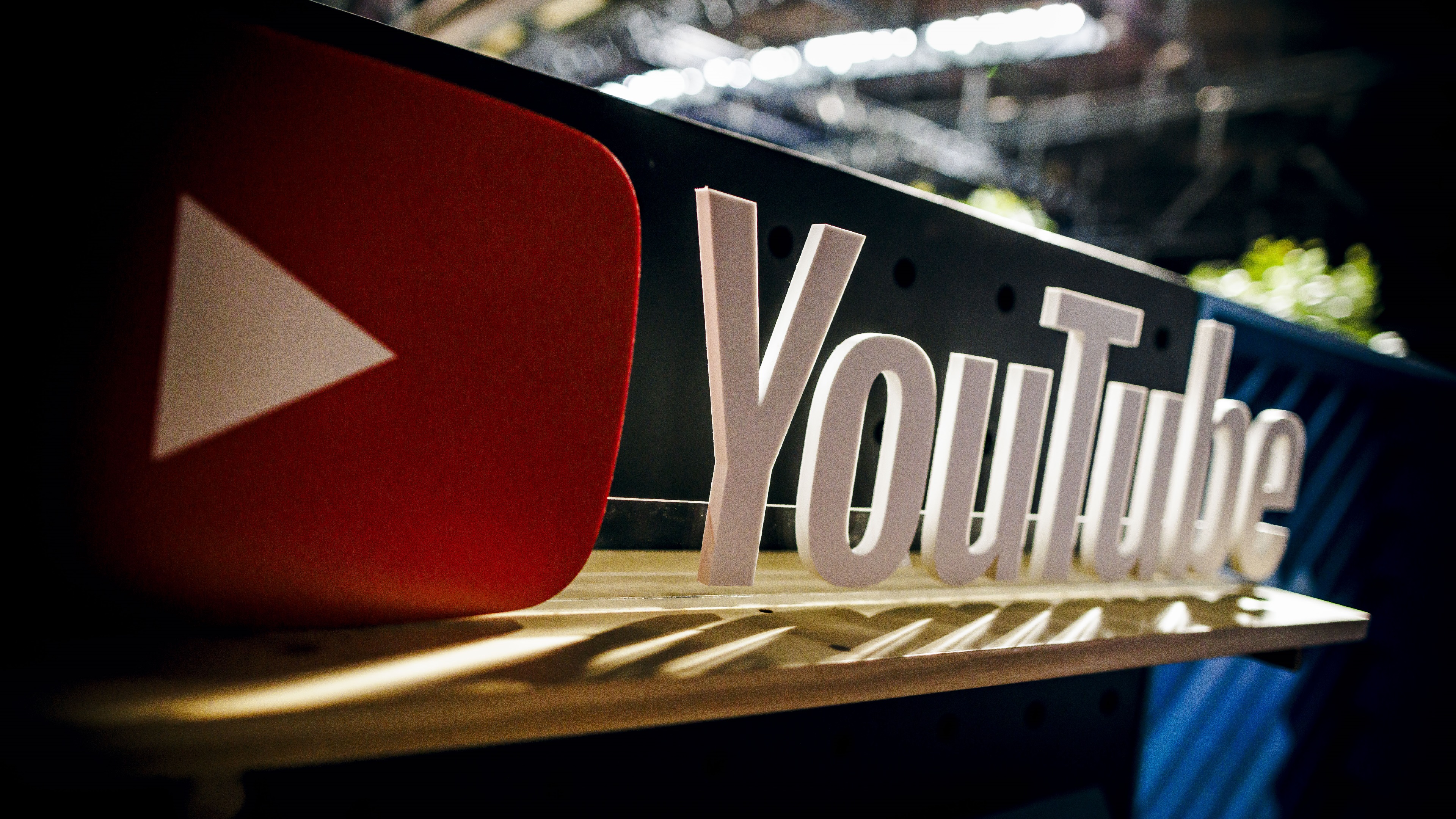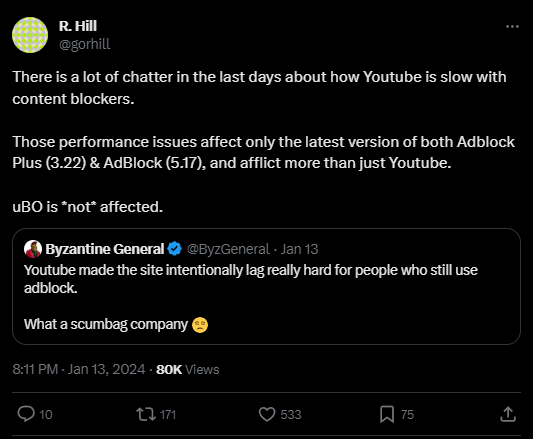It's not just you: YouTube is slowing down your PC if you have AdBlock installed by making your CPU sweat—though despite the company's past behaviour, it's probably AdBlock's fault
YouTube Premium members also appear to be impacted.

January 16: This article was originally published on January 15. After comment from YouTube and further evidence drawn from other sources, I've updated it to reflect the story's development. Click here to jump to the latest information.
AdBlock users have been reporting widespread performance issues with the extension enabled on YouTube, and while suspicion justifiably fell on YouTube's head, the problem may not lie in the platform itself.
In a thread posted to the YouTube subreddit over the weekend (thanks, 9to5Google) users noted that having AdBlock enabled caused slow load times and increased CPU usage, as one user writes: "This messes up the resources on the computer as a whole. It just kills chrome it seems."
I decided to test this myself, and I noticed that having YouTube open with AdBlock increased my rig's CPU usage by around 17%. While using AdBlock or similar programs is against the website's terms of service, AdBlock is also a massively popular extension. On the Chrome web store it boasts 60 million users.
From what I could see the increase was pretty consistent—so not a dangerous spike—but lower-end laptops mainly used for browsing could start having heat problems. At best it's inconvenient and annoying.
This has led to troubleshooting paranoia, as sudden and unexplained performance dips can be a sign of hardware problems. User JotaroKujoxXx says they were "wondering why my laptop ran like a fucking jet for the last few days", while another commenter replies: "Yeah I've been deleting shit randomly thinking it was my storage space problem."
The slow-down also appears to be impacting users who are subscribed to YouTube Premium while using AdBlocker for other websites, which is a problem—seeing as a subscription is a way to avoid ads without violating ToS, causing some users to feel hard done by. Our Guides Writer Sarah James tested the extension with Premium, and noted an increase of about 15-18%.
While YouTube has come under severe suspicion—including from myself—said suspicion was not entirely unwarranted. In November of last year, TheVerge reported a five-second loading delay on other browsers running ad blockers, and the company's statements created a solid M.O for this kind of thing.
Keep up to date with the most important stories and the best deals, as picked by the PC Gamer team.
The report stated that YouTube's communications manager Christopher Lawton "said that users will keep seeing issues like this as YouTube’s ad-blocker detection methods improve". These measures have made the company first-in-line to blame for any problems with these extensions—even when, as it turns out, it's (relatively) innocent.
YouTube responds, blame may lie in AdBlock Update
I've received a comment from Christopher Lawton (YouTube's communication manager) who says in no uncertain terms: "loading delays experienced by Adblock and AdBlock Plus users are not caused by our ad blocker detection efforts."
That's to be taken with whatever pinches of salt you deem fit, though there's been some compelling evidence surfacing on AdBlock's github page which suggests that YouTube is innocent in the whole debacle, past transgressions aside.
As highlighted by beepingcomputer, the issue trackers on GitHub for both AdBlock and AdBlock Plus have been reporting problems with the extension's latest updates (5.17 and 3.22 respectively). This was further highlighted by Raymond Hill of uBlock Origin on Twitter.

"I investigated a bit the performance regressions, and the cause is many distinct code paths, [which] affect many sites" wrote Hill, later highlighting sites which update dynamically. "Since it affects both Adblock Plus and AdBlock, the performance regression hits harder those who had the bad idea to use both at once."
While uBlock was acquired by AdBlock in 2018, it should be noted that Hill works on uBlock Origin, a version of the extension that remained independent after uBlock's acquisition.
It should be also noted that Hill doesn't have much to gain from pointing this stuff out. uBlock Origin is free, open-source, and doesn't take donations. Instead, as Hill writes on the project's GitHub wiki: "Have a thought for the maintainers of the various [block] lists. These lists are everything. I can not emphasise this enough."
So there's the rub: the blame likely falls with AdBlock, and the problems may impact other websites. YouTube simply found itself in the unenviable position of being a very popular platform, being the most impacted by the bug, and having the least benefit of the doubt considering its past aggressive anti-ad blocker measures.

Harvey's history with games started when he first begged his parents for a World of Warcraft subscription aged 12, though he's since been cursed with Final Fantasy 14-brain and a huge crush on G'raha Tia. He made his start as a freelancer, writing for websites like Techradar, The Escapist, Dicebreaker, The Gamer, Into the Spine—and of course, PC Gamer. He'll sink his teeth into anything that looks interesting, though he has a soft spot for RPGs, soulslikes, roguelikes, deckbuilders, MMOs, and weird indie titles. He also plays a shelf load of TTRPGs in his offline time. Don't ask him what his favourite system is, he has too many.

